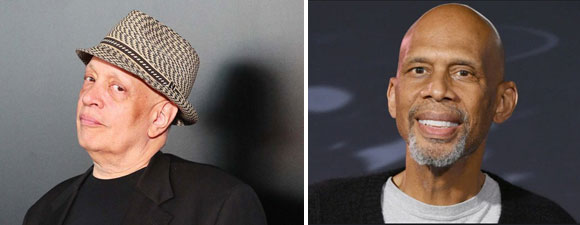Mosley On Quitting Discovery’s Writers’ Room
3 min read
Writer Walter Mosley was chastised by human resources for using the “N-word” on the job, and it led to his departure from the Star Trek: Discovery writers’ room.
Mosley, who is black, was told by human resources that the word was a fireable offense. “Earlier this year,” he said in an op-ed in The New York Times, “I had just finished with the Snowfall writers’ room for the season when I took a similar job on a different show at a different network. I’d been in the new room for a few weeks when I got the call from human resources. A pleasant-sounding young man said, ‘Mr. Mosley, it has been reported that you used the N-word in the writers’ room.’ I replied, ‘I am the N-word in the writers’ room.’
“He said, very nicely, that I could not use that word except in a script. I could write it but I could not say it. Me. A man whose people in America have been, among other things, slandered by many words. But I could no longer use that particular word to describe the environs of my experience.”
Mosley went on to explain that he hadn’t “called anyone it,” but “just told a story about a cop who explained to me, on the streets of Los Angeles, that he stopped all [N-word]s in [Irish] neighborhoods and all [Irish] in [N-word] neighborhoods, because they were usually up to no good. I was telling a true story as I remembered it.
“Someone in the room, I have no idea who, called H.R. and said that my use of the word made them uncomfortable, and the H.R. representative called to inform me that such language was unacceptable to my employers. I couldn’t use that word in common parlance, even to express an experience I lived through.
“There I was, a black man in America who shares with millions of others the history of racism. And more often than not, treated as subhuman. If addressed at all that history had to be rendered in words my employers regarded as acceptable.
“There I was being chastised for criticizing the word that oppressed me and mine for centuries. As far as I know, the word is in the dictionary. As far as I know, the Constitution and the Declaration of Independence assure me of both the freedom of speech and the pursuit of happiness.”
Mosley’s answer to the phone call was to “resign and move on. I was in a writers’ room trying to be creative while at the same time being surveilled by unknown critics who would snitch on me to a disembodied voice over the phone. My every word would be scrutinized. Sooner or later I’d be fired or worse — silenced.”
CBS TV Studios responded to the op-ed via a statement to The Hollywood Reporter. “We have the greatest admiration for Mr. Mosley’s writing talents and were excited to have him join Star Trek: Discovery. While we cannot comment on the specifics of confidential employee matters, we are committed to supporting a workplace where employees feel free to express concerns and where they feel comfortable performing their best work. We wish Mr. Mosley much continued success.”
Former basketball star Kareem Abdul-Jabbar chimed in on the matter, saying it was “all kinds of crazy. The writer who was offended should have expressed their discomfort directly to Mosley so they could have a mature discussion,” he said. “The offended writer should have asked themselves a few questions about whether or not taking offense was a legitimate response to a black man telling a story that happened to him and quoting the dialogue used. Clearly, the story has much more visceral impact — which was Mosley’s point—when you hear the actual word being spoken so cavalierly by a police officer. And why was there no offense taken to the use of the derogatory ‘paddy’? Finally, one has to question the ability of that writer to produce complex and layered characters and themes if they lack the sophistication to understand all that.
“The proper context for HR to curtail speech is when that speech is used in a way that promotes hate toward or the devaluation of a person or group based on religion, gender, gender identity, ethnicity or national origin. Mosley’s comment did the opposite: it revealed the harsh reality of how that hatred works.”






